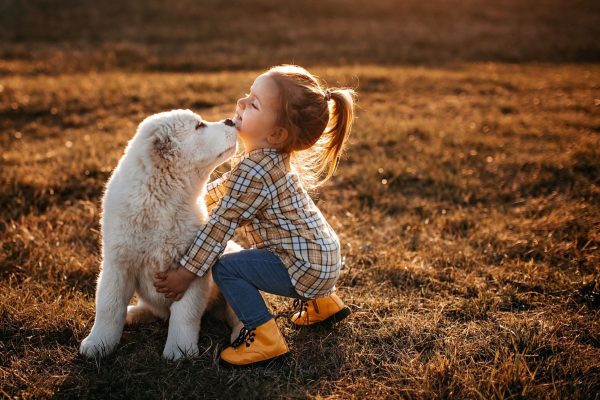Puppies are sweet once they’ve gotten around to being comfortable around you. But that process of getting comfortable can be difficult for both you and your puppy. Regardless, you will need to take measures to keep your new puppy healthy and safe. If you’ve never owned a puppy before, this may prove a difficult task – although not that difficult. Puppies are young, lively, and lacking control; they are prone to hazards, and you’ll need to keep those hazards to the barest minimum.
Furthermore, purchasing food, accessories, and other things for your puppy’s comfort is now easy. You may pay with your credit/debit card or buy XRP or any crypto coin and pay with it. Okay, let’s get into the tips for keeping your new puppy healthy and safe already.

How to Keep Your New Puppy Happy, Healthy, and Safe
Puppies are like children; this will be much easier if you have some experience with children. But, whether or not you do, below are measures you can take to keep your puppy safe and healthy.
- Do routine health checks. Always do a health check for your puppy – every day. Visit the veterinary doctor at least once a month for routine health checkups, or you can have them come and check. With this, you’ll stay abreast of your puppy’s health state. Furthermore, if there’s any issue, you’ll discover it early and treat it before it escalates. Routine checks are more preventive and they can be a good way to save a lot of money that would have been spent treating your puppy. If you’re a cryptocurrency enthusiast, you can use centers that accept Bitcoin or Ethereum.
- Feed your puppy. Does eating make you happy and less stressed? Well, that’s what it does for dogs as well. A well-fed puppy will be less grumpy and more pleasant. Moreover, consistent and appropriate feeding is essential to keep puppies healthy. “Appropriate” in that you’re giving your puppy the right kind of food and doing so at the appropriate time.
- Keep harmful substances away. Just as you wouldn’t leave a knife where children can play with it, you shouldn’t with puppies as well. An adult dog may know how to play with knives; puppies don’t. In addition, you’ll want to keep harmful chemicals like soaps and detergents, bleaching agents, and paints as far away as possible. The puppy can eat or lick such, and bad things can happen.
- Make your puppy’s bed. You’ll want to find the perfect spot to place your puppy’s bed, like a draught-free kitchen corner. The kitchen is good because it is warm and has washable floors. You’ll want to keep children away from the puppy’s sleeping place, teaching them not to disturb a tired or sleeping puppy.
- Keep your puppy clean. Clean your puppy as often as needed. You may need a designated area for bathroom activities and train the puppy to use it. Whenever the puppy urinates, take her to the designated area and clean her. Soon, you won’t need to take her there yourself; it’ll go on its own.
What You Shouldn’t Do To Your New Puppy
As humans, there are times when we get sad and maybe depressed due to overwhelming circumstances going on within or around us. Surprisingly, this is not an exclusive preserve of humans alone. Puppies also get sad and depressed – and, sometimes, we’re the cause. Below are things that can make a puppy unhappy or unhealthy and that you want to avoid.
- Don’t shout, yell, or physically punish your puppy.
- Try to understand your puppy and don’t lay huge expectations on her.
- Don’t lock your puppy in a crate or cage for more than twenty minutes. On some occasions, you should allow them the freewill of moving from one place to another.
- Don’t isolate your puppy from the outside world. The more the puppy interacts with the world around her, the happier she gets.
- Don’t let children less than six years old interact with the puppy without supervision.
Dog Accessories to Get for Your Puppy
While you can get some accessories from a walk-in store and pay for others with XRP, you must ensure you’re getting the best. Below are accessories your puppy will need to get comfortable and accustomed to its new environment:
- Food and water bowl for puppies
- A collar
- A leash
- Toilet rolls
- Chew toys for puppies
- Tick and flea repellants
- A crate, basket, or carton
- Cleaning tools
In conclusion, puppies demand attention – a lot of it. As such, you shouldn’t get a puppy if you know you don’t have the time. If you do get a puppy, you want to ensure it is in the best health state, comfortable, and happy.
